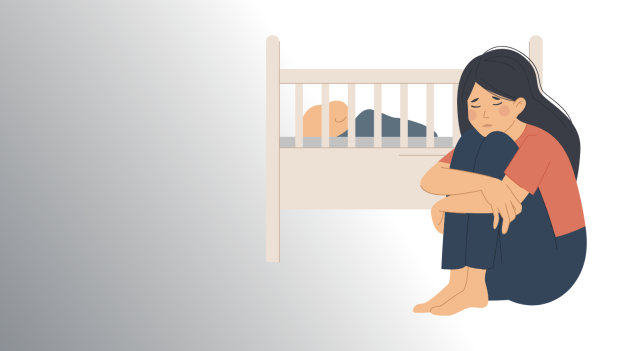Let’s talk about Postpartum Depression
It is estimated that one in seven women can develop postpartum depression. Postpartum depression is a major form of depression that occurs following childbirth. It is normal for new mothers to experience what have been coined the “baby blues” which include mood swings, crying spells, anxiety, and difficulty sleeping. However, the baby blues last up to 2 weeks.
Postpartum depression is a long lasting form of depression that can be debilitating and severely affect the mother’s ability to function. Fortunately, postpartum depression is very treatable.
Symptoms
Symptoms of postpartum depression are similar to depression, but there are unique symptoms that make it its own type of depression, such as:
Excessive preoccupation with the child’s health
Intrusive thoughts of harming the baby
Drastic changes in motivation, appetite, and/or mood
For symptoms of depression, visit “Learning about Depression”.
If you or someone you know is experiencing symptoms, check your risk by taking our postpartum depression screening.
Treatment
Treatment will vary depending on the severity of the disorder, but the treatment for postpartum depression is similar to other depressive disorder treatments. Most treatments include psychotherapy, medication, or a combination of the two.
It important to know that treatment for mental health conditions are tailored to the individual and the information presented here are just a few of the many different treatment options.
Psychotherapy
Psychotherapy is a form of treatment conducted by a trained and licensed therapist (i.e., psychologist, social worker, or counselor). The therapist provides a supportive environment for individuals to talk openly about their mental health condition(s) and emotional challenges with someone who is objective and non judgmental. There are many different types of psychotherapy, but in general the therapist and patient work together to identify the causes of their mental health condition, develop coping mechanisms, and challenge thinking and behavioral patterns.
Cognitive Behavioral Therapy
One of the most effective forms of psychotherapy for depressive disorders is cognitive behavioral therapy (CBT). This type of psychotherapy is based on the principles that mental health conditions derive from unhelpful ways of thinking and learned patterns of unhelpful behavior. Symptom relief occurs by individuals challenging and changing their thinking and behavioral patterns (American Psychological Association, 2017).
Medications
Medications can help relieve symptoms of people with depressive disorders. The most commonly prescribed antidepressants are selective serotonin reuptake inhibitors (SSRIs). Antidepressants take time to take effect. It is not uncommon for them to take several weeks or longer to work and you may need to adjust or dose or type of medication multiple times before finding what works best for you and your symptoms (Mayo Clinic, 2019).
It is important to consult with a medical provider before taking any medications.

Resources
Looking for information, tools or resources for mental health?
Visit our online resource library, where you’ll find tools and apps to support your mental health and wellness, information about mental health and common mental health conditions, on-demand videos and trainings, interactive tools to help you build wellness and safety plans, research and reports, resources for schools and workplaces, and much more!

